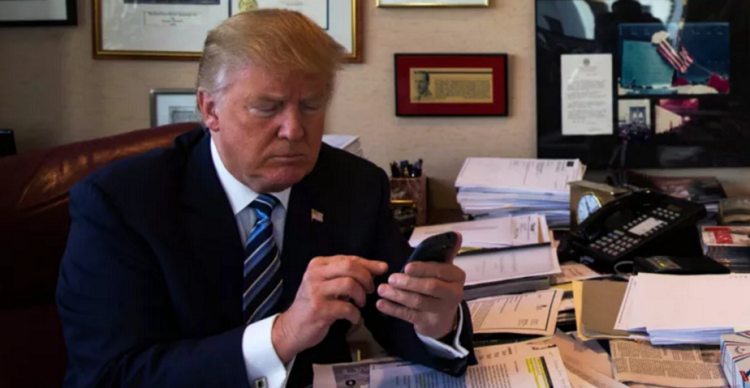By
LAUREN MURPHY

The good old political statement. For centuries, it was seen as a rousing tool to address the masses, putting the public’s fears at ease. It was a means to be held accountable to the electorate, and the sign of a strong leader. Then along came Twitter.
In some ways, Twitter makes our politicians more reachable and more human. They use it just like the rest of us—the more honest the content, the more down-to-earth they appear.
But what happens when we start allowing and expecting digital channels to become the default forum for public conversations?
Public tweeting over public speaking
President Trump, the infamous reactionary Twitter user that he is, has seemingly set a standard of best practice of bypassing the public statement and using social media as the preferred place for politics.
We recently saw the struggle of his Secretary of Homeland Security Kirstjen Nielsen going from Twitter explosion to a heated and lacklustre press conference on the sensitive and emotional issue of family separation on the US-Mexico border.
Taking to Twitter, Nielsen blasted the media for their “misreporting” and “irresponsible and unproductive” behaviour, attempting to set the record straight in a three-post thread about the detail of policy and process.
In doing so, Nielsen put herself on the back foot. With Sarah Huckabee Sanders to warm up the crowd, coupled with a lack of any solid pre-briefing, things were never going to go smoothly.
Misreading her audience and perhaps even her portfolio, Nielsen started with a smile, congratulating law enforcement agents for their work at the border. She subsequently fluffed most of her answers by deferring to previously made robotic statements, and seemed to enjoy cutting off questions with snarky retorts.
Has this high-ranking, elected government official ever dealt with the press or public before?

You can run, but you can’t hide
The ability to use Twitter to say what you think means politicians are now able to hide from the daily grind of politics, like the tough press conferences, the intimidation of making statements to parliament, and the trepidation of public surgeries and door-to-door canvassing.
Of course, social media has its place, allowing leaders to react quickly to a developing story or breaking news. But as Secretary Nielsen came to learn, quick is not always good. 280 characters isn’t enough to satisfy the public on serious policy matters.
Yes, social media brings a certain closeness in terms of being able to get in touch with your local representative, so long as they actively use it and interact with their followers. But it is also in many ways impersonal.
Even eight years ago, when I started work at the European Parliament, the handwritten letters, carefully typed emails and long phone calls came in droves, along with the weekly constituency meetings and annual local party member events. This ‘old-school’, public way of doing politics was the only chance for politicians to be brought back down to earth and be held accountable to their constituents.
The best of both worlds
In total contrast to Secretary Nielsen, we could take the recent example of UK Home Secretary Sajid Javid, who managed a flurry of rapid news around the hospitalisation of 11-year-old epileptic, Billy Caldwell, whose cannabis oil was confiscated, abruptly halting his condition’s treatment.
Rather than jumping to social media to defend, accuse and excuse, the UK Home Office started a thought-out, controlled Twitter thread setting out Javid’s statement just a few hours before his formal address to MPs. This was followed up with a visual tweet explaining what the Home Secretary said, had done and was going to do.
This integrated, clearly thought-out approach to communications— through the use of social media in combination with traditional statements, press releases and conferences—provides that desired, immediate reaction, but also backs it up with the substance.
Successful communications is a long game. We have to ask ourselves how much we are prepared to sacrifice for the sake of instant politics. Do we want our politicians to ‘shoot from the hip’ or react sensibly and strategically?
LAUREN MURPHY
Lauren is a Client Manager at PR360. She helps clients achieve their goals by creating effective strategies and campaign plans. Outside of work, Lauren is always on the go, whether she’s at language classes, the gym or meeting friends.

